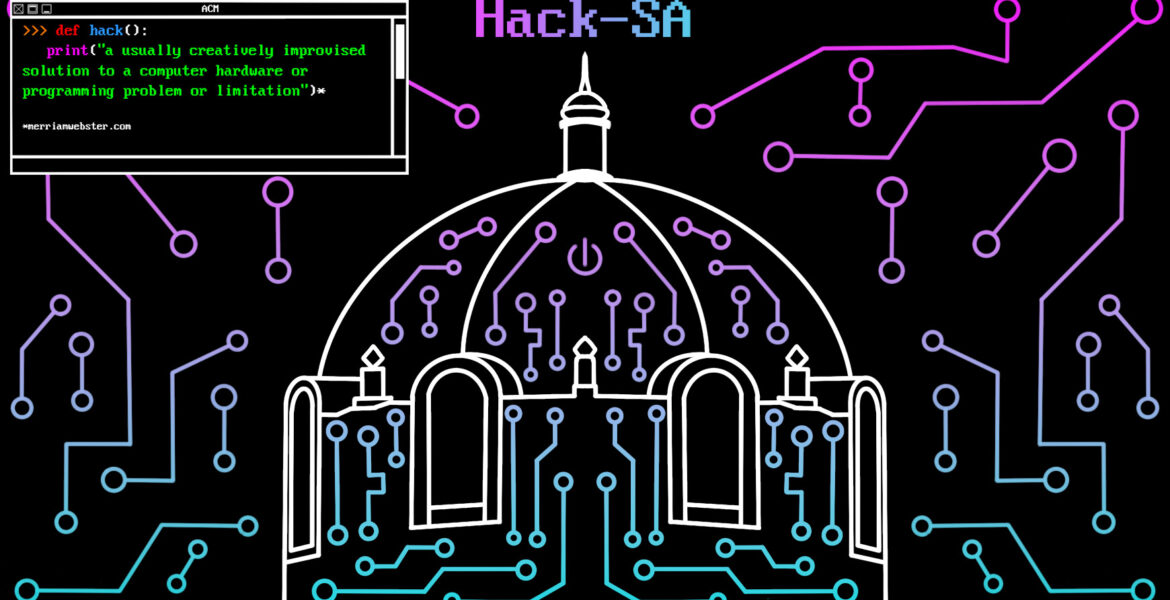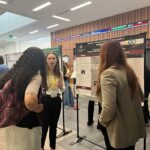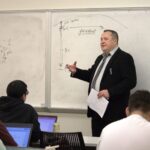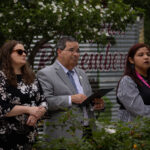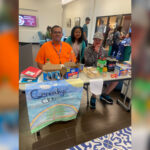A technology club at Texas A&M University-San Antonio is inviting the A&M-San Antonio and the surrounding community to its first 24-hour hackathon to learn how to solve societal problems through teamwork, coding and brainstorming, one byte at a time.
The Association for Computing Machinery (ACM) Student Chapter will host Hack-SA Oct. 23-24.
Participants will check in at 10 a.m. on Oct. 23 in the esports room, located in room 105 of the Central Academic Building. The hackathon challenge will run from noon Oct. 23 until noon Oct. 24 and will be followed by a closing ceremony at 4 p.m., Oct. 24.
Students, faculty and staff are encouraged to attend Hack-SA, even those who are not computer science majors or tech-savvy. Hack-SA will also be open to the surrounding community.
Dr. Jeong Yang, associate professor of computer science for the Department of Computational Engineering, and Mathematical Sciences and adviser for the ACM Student Chapter, stressed that hackathons are not necessarily about hacking, rather they are learning opportunities where the community can come together and create solutions to better society.
“Hackathon is not about hacking; it’s about brainstorming new ideas, to create innovative solutions for the given task,” Yang said.
Attendees will be divided into groups and given a short and vague prompt. Each group will then be given 24 hours to brainstorm and create a project solution. Once the 24 hours are up, the groups will pitch their idea to judges including professors and professionals in the computing field.
“There’s this common misconception that hackathons are only for tech majors because of the word ‘hack’ – y’know people kind of get scared by that word – but they’re actually used as an incubator for innovation,” said Janet Zulu, computer science senior and vice president of the ACM Student Chapter.
The theme for Hack-SA will be “Hack for Social Good.” Attendees will be encouraged to create projects that impact society in a positive way.
“We want students to create projects that will somehow impact social good on some level, and that could include proposals, PowerPoints, something that’s tangible and they can present to judges of various professions,” Zulu said.
For example, Zulu described creating an idea that helps students with disabilities, such as having doors stay open for a longer amount of time or creating PowerPoints with different colors to help students with dyslexia stay engaged in class.
“Our university is very student-led, and I think that this would give them the space and resources to fulfill those solutions,” Zulu said.
Hack-SA will be the first hackathon taking place on campus with a maximum capacity of 130 attendees.
Computers and food will be provided by ACM and the Department of Computational Engineering and Mathematical Sciences.
“This first hackathon hosting is a symbolic event for especially the ACM student chapter and the computer science department,” said Yang, noting that the hackathon will have a “significant impact” on the program as well as the university.
Arturo Corona, computer science senior and president of the ACM student chapter, explained how A&M-San Antonio is not yet seen as a computing university.
“Whenever I meet new people, I’m like, ‘I’m from San Antonio, Texas’, and they’re like, ‘Oh UTSA!’ So, I think doing this would make it more like, ‘Oh, are you from UTSA or A&M-San Antonio?’ That way they’re both known in the San Antonio area,” Corona said.
Attendees can take breaks and even join other events on campus hosted by other organizations at the same time as the hackathon, or rest in the esports room.
While sleeping is entirely optional, ACM officers encouraged attendees to bring a pillow and blanket in case they want to rest during the hackathon.
For those thinking of attending but who are not tech savvy, Zulu assured that beginners were kept in mind during the planning for the event.
ACM officers and mentors will be present to help attendees. Coding knowledge will not be required to compete. Attendees will be allowed to be judged on their ideas, not only their code.
“The point of this is to learn; it’s an experiential learning opportunity,” Zulu said. “We don’t need someone to come in knowing every single tech stack out there; we want them to come in and be prepared to learn.”
For more information, visit Hack-SA’s JagSync page or visit the official website for Hack-SA.

